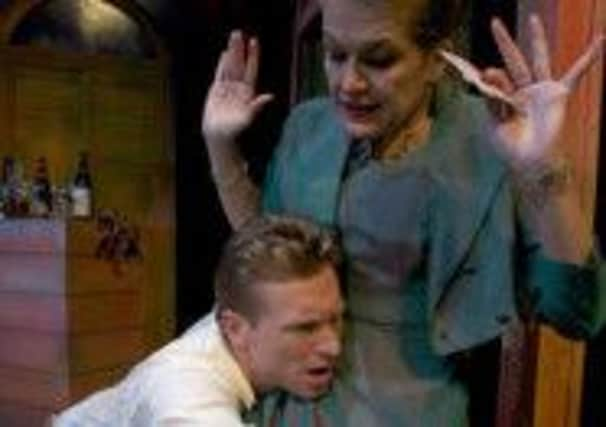Theatre review: Under The Mulberry Tree


Under The Mulberry Tree - Festival Theatre Studio, Edinburgh
***
Set in the 1950s, Under The Mulberry Tree begins like a Noel Coward play, as middle-aged idler Monsieur Guillaume, at his shabby small hotel in the south of France, receives an unexpected visit from his smart Parisian sister Gilberte. Things take a more emotional turn, however, when Gilberte confesses that she is pregnant, following a rash affair with a younger man, undertaken in revenge for her husband’s serial infidelities.
Advertisement
Hide AdIt’s not until later, though, that the play’s tragic heroine Connie appears, a desperate 40-year-old childless Englishwoman travelling in France with her cruelly undemonstrative husband, and we begin to understand how Guillaume’s handsome young companion Julian preys not only on Guillaume, but on lonely older women.
Somewhere inside Timothy Jones’s two-hour play, there lurks a potentially radical – almost Ibsenesque – critique of middle-class hypocrisy around women’s sexuality. Connie is damned to misery and barrenness because of an early extramarital affair; Julian has been sexually abused by his own mother.
The style of the play, though, is so relentlessly conventional and picturesque – and so beautifully lit by Simon Wilkinson – that the effect is somehow more soothing than challenging. The medium is the message, in the end, and the old-fashioned approach chosen by this play robs the message of at least some of its force.
Seen on 03.04.14